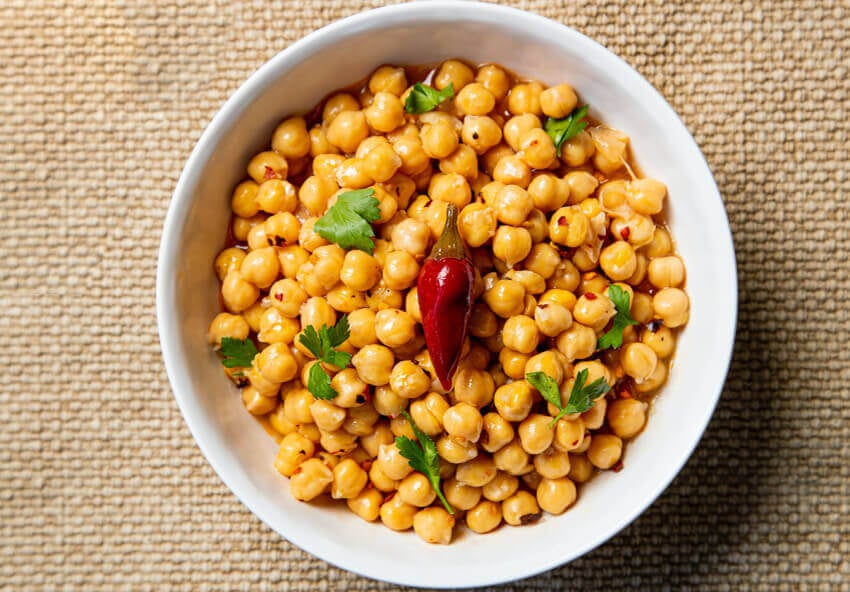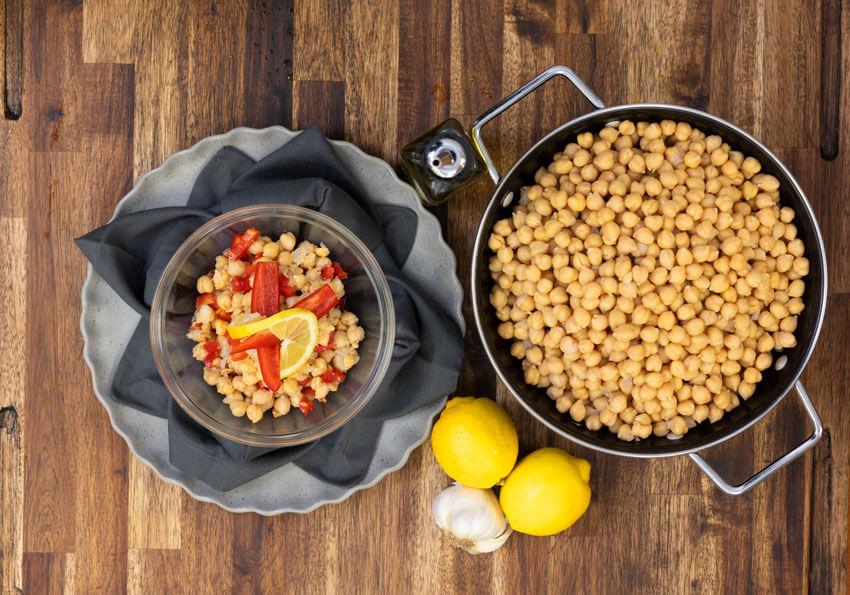Are Beans Keto?

Beans have many nutritional benefits and can help reduce risk for heart disease, diabetes, cancer, and obesity all while being gluten-free, vegan and vegetarian. They are also affordable and have long shelf-life. Overall, beans are a great superfood.
Are Beans Keto? Table of Contents
Whether you’re looking to cook your own keto recipes or looking for someone else to do the keto meal prep for you, sometimes it is good to know what can and can not be had on keto.

Beans are high in fiber and carb so they are not for the keto diet.
Why Are Beans Not Keto Friendly?
Keto is a low-carb, high fat diet. Most types of beans are high-carb which means they have to be limited or excluded from the ketogenic diet. The range can vary, one average serving can consume a large chunk of your daily carbohydrate allowance. Here is what the carbohydrate content for a cooked, single serving (about 1/2 cup) of the most common types of beans looks like:
Mung Beans:
Fiber: 7.7g
Total Carbs: 19.4g
Net Carbs: 11.7gBlack Beans
Fiber: 9g
Total Carbs: 19.4g
Net Carbs:11.7gPinto Beans
Fiber: 7.5g
Total Carbs: 22.5g
Net Carbs: 15g
Garbanzo Beans (Chickpeas)
Fiber: 6.3g
Total Carbs: 22.5g
Net Carbs: 16.2gKidney Beans
Fiber: 6.4g
Total Carbs: 22.8g
Net Carbs: 16.4gWhite Northern Beans
Fiber: 5.5g
Total Carbs: 22g
Net Carbs: 16.5g
The Lowest-Carb Bean for Keto
Referencing the list above, mung beans are the most keto-friendly beans to eat but depending on the type of keto diet you’re following the keto diet, all the above may be off limits!
What Other Types of Beans are Keto?
Are other kinds of “beans,” like green beans, coffee beans, cocoa beans, or soybeans, keto? The answer is some are, and some are not. A half cup of cooked green beans has about 3g of net carbs, making them a very healthy and low-carb option for your keto diet, while soybeans (or edamame) have about 7.5g of net carbs. However, many soy-based products will have varying carb content.

Green beans are keto diet approved.
1 cup of soy milk: 13.5g net carbs
1 serving (3.5oz/100g) tofu: <2g net carbs
1 serving (3oz/85g) tempeh: 16g net carbs
Other kinds of beans like green beans, brewed ground coffee beans, and soybeans are relatively low in carbohydrates depending on how they are prepared.
A 1 cup serving of black ground coffee beans have almost no carbs but eating whole coffee bean snacks (especially chocolate-covered ones!) can have upwards of 15g of carbs per ounce. Chocolate covered snacks like coffee beans can have even more carbs thanks to cocoa beans, which translate to about 15g of carbs per 1oz of dark chocolate or 9g net carbs for plain cocoa beans.
Soy products like tempeh or soy milk, and chocolate-covered coffee beans can skyrocket your carb total quickly if you aren’t careful!
High-Protein, Low-Carb Keto Alternatives to Beans
The good news about all this is that there are PLENTY of low-carb, high protein options that you can eat to help up your protein and give you all the nutrients you need to stay healthy while abstaining from beans.

No Bean Chili Recipe Ingredients
While beans have the benefit of being both high in protein and high fiber, there are individual foods that can come together to fulfill their nutritional needs. These can include:
Ground turkey, chicken, or beef: High protein, low fat
Flax and chia seeds: Low carb, high fiber
Cottage cheese: High protein, low sodium
Nut butters: High protein, full of healthy fats
Greek yogurt: High protein, packed with probiotics
Salmon and tuna: High protein, rich in Omega 3 fatty acids
Eggs: (e.g. hardboiled eggs, scrambled eggs, omelettes). These are high protein and by separating the egg yolk from the egg whites you can make them low cholesterol.
Blackberries and raspberries: High fiber and antioxidants
Coconut: High fiber, rich in copper and antioxidants
Cauliflower: High fiber, rich in Vitamin C and B-vitamins. For example, a quick and easy keto cauliflower mash recipe and a low carb cauliflower rice recipe.
Alternatives that work as strong replacements in recipes that call for beans (like they do for this Easy Keto Chili without beans) can include:
Tofu
Mushrooms
Zucchini
Peppers
Asparagus
Eggplant
Eating other low-carb foods high in protein and fiber can provide the same nutritional benefits of beans. There are many plant-based sources that can also work in recipes that call for beans as an ingredient.
Plant-Based Protein Alternatives to Beans
Eating a plant-based diet doesn’t mean you have to go fully vegan or vegetarian. Incorporating more plant-based foods or plain ol’ delicious whole vegetables and fruits into your everyday diet has a number of health benefits like lower blood pressure, lower cholesterol, healthy weight loss, and lower risk of developing cancer.
Tofu (3oz) –1.6g net carbs / 7g protein
Avocados (100g) – 8.5g net carbs / 2g protein
Broccoli (1 cup) – 4.6g net carbs / 2.6g protein
Peanut butter (2 Tbsp) – 4.1g net carbs / 8g protein
Plant-based protein powder – varies depending on brand.
Plant-based milks – varies depending on brand.
Eating more plant-based foods like whole vegetables can help prevent cancer and cardiovascular issues, while still providing keto-friendly high protein selections.
Keto Meals
MealPro offers a diverse keto meal plan that includes entrees containing dairy that is rich in casein protein. Sign up today to have our delicious keto meal boxes shipped to your home or office.